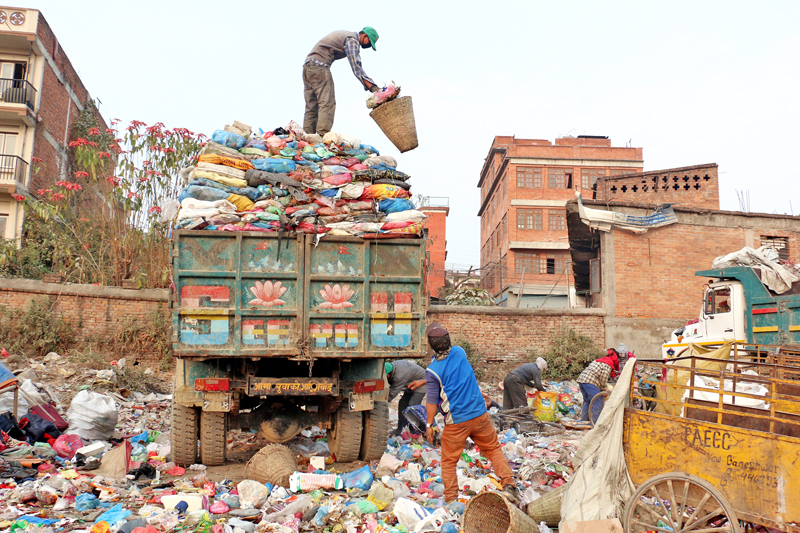Fines for not segregating household waste at source
Kathmandu, October 17
The Ministry of Federal Affairs and Local Development had instructed metropolitan cities, sub-metropolitan cities, municipalities, and Village Development Committees to strictly follow the Solid Waste Management Rule 2013.
As per the rule, those who dispose of waste products without separating biodegradable and non-biodegradable waste will face a fine ranging from Rs 5,000 to Rs 25,000.
The Environment Friendly Local Governance Framework 2013 stipulates that all people must separate biodegradable and non-biodegradable waste materials, and local bodies have been given the responsibility to enforce the law collect the fine from rule violators.
Under Secretary and Program Manager of MoFALD/EFLGP Chakrapani Sharma said, “It is the fundamental right of all citizens to live in a clean environment. The levels of pollution in the country have been increasing day by day.
The ministry has strictly instructed local bodies to enforce this rule to encourage people to be more attentive and protective towards the cleanliness of their localities.”
The ministry plans to launch an awareness campaign until October 26 on the same issue with the support of major political parties. Sharma informed that wastes from construction works must be cleared within 24 hours in public places and roads. If one failed to do so, those responsible can be fined up to Rs 25,000 .
Local bodies have been instructed to develop a schedule for waste collection and inform the public about it.
“It has been very difficult to manage solid waste in Kathmandu Metropolitan City because of the large number of people living
in it. We have been collecting 5 to 6 metric tonnes of waste from over 300,000 houses in the city,” Spokesperson of the Kathmandu Metropolitan City Gyanendra Karki said.
The KMC has been developing a strategy to manage the waste of the entire city. “It is very important to follow the constitution.
Following the stipulations will help maintain the beauty and cleanliness of Kathmandu, but we need a lot of human resources and find places to dispose of the garbage.” Adding, he said, “We will do our best to make this city and country clean and beautiful.”






